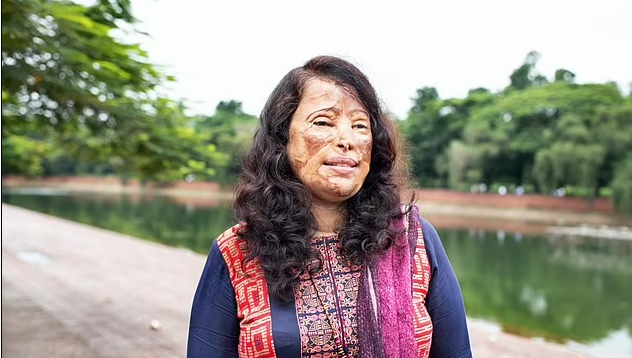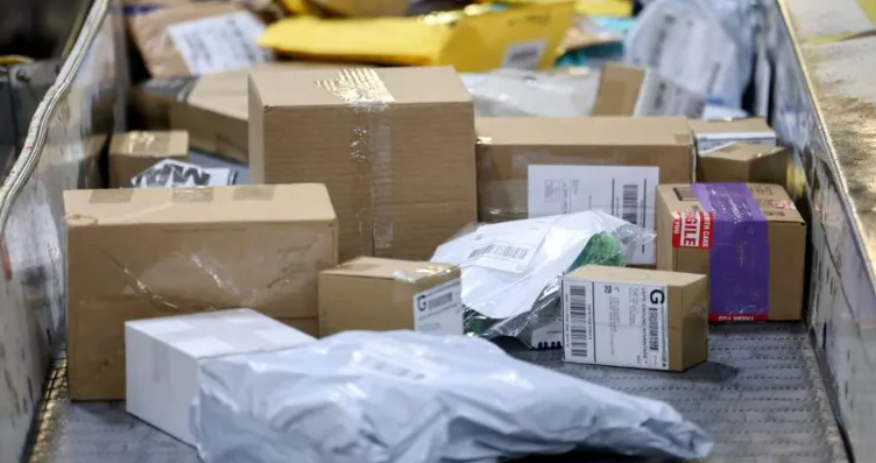
On 30 July 1995, I was at home. It was night when I started to hear strange noises. My mother and I thought we were being robbed, but the reality was much worse.There were 11 boys – I recognised one of them. He was two years older than me and had told my friends he liked me and wanted a relationship with me. I had refused.
That night, he threw acid over me. I was 15 years old.
When it first happened, I didn’t realise it was acid. My neighbour came to my house and told me that my face was turning black. I was in a lot of pain and ended up being in hospital for eight months, where I had five surgeries on my face.
How I felt during that recovery phase is indescribable. It felt like both physically and mentally that I had nothing left.
I looked at my face in the mirror and I was in disbelief. I was stunned. I saw a completely different person staring back at me. I couldn’t recognise myself. I could never imagine that my face could be so distorted.
Though I was so young, I had to gather courage and restart my life from scratch.
Since the day of my attack – the day that my life changed forever – I’ve learned that acid is used in attacks against women and girls because so much bearing is placed on their physical appearance in society.
Acid attacks are used as a means to permanently scar the survivor and reinforce harmful patriarchal norms that are rooted in a male sense of entitlement over women. I rejected a relationship proposal. I was attacked with acid as a result.
A woman’s disfigurement becomes a public mark of shame, making it hard for her to go to school, gain employment or engage in public life.
My attacker wanted to put an end to my life as I knew it. But I won’t let him. I am here. I am alive. I have grown up with this, and against all odds, I have achieved my dreams.
Since the age of 15, every day has been another step in the survival process.
At the time, I lived in a small Bangladeshi village, and re-integrating back into society was challenging. People stare at you, speak about you behind your back, or shout vile insults to you in the street.
After the attack, people from different walks of life, including my neighbours, neglected me, thinking I would be a burden to my family. They used to make fun of my disfigured appearance. It used to make me depressed and hurt at times.
Leaving the house was a daily struggle.
Over the years, I’ve seen many survivors blamed for their attack – even by their own families. People say: ‘Maybe you were doing something wrong, and that’s why the guy was angry and threw the acid at you.’
But unlike many other survivors, I had full support from my family to move forward and there were many good people in my community who gave me courage and stood by my side. I vowed I would never be made to feel like I was to blame for this incident.
It has been a long, difficult road, but I managed to stay in school, and go to university.
About five years after my attack, I began to read about new acid attack survivors every day in the news, and I wrote the survivors a letter and sent it with my picture.
It was truly empowering to be united with other people who understood my experience. I would tell them: ‘I am also a survivor. And I am always with you. So you can share anything with me.’
Over time, 200 survivors wrote back to me. I was overwhelmed with so many responses, but also angry to learn how widespread these attacks were. I felt inspired to work for them. For us.
In 2007, we came together to form the Acid Survivors’ Network, with support from ActionAid Bangladesh. And with it, my dream came true.
Now, I have the chance to provide vital support to people who, like me, don’t want to be defined by their vicious attack. I became an integral part of the Network’s formation and operation as a focal point of ActionAid Bangladesh.
My role is to design projects focusing on acid survivors’ empowerment, coordinate with the Network members, and conduct quarterly meetings.
I also conduct different types of skill development training for survivors: on leadership, women’s empowerment, and stopping violence against women.
Source: dailymail.co.uk




